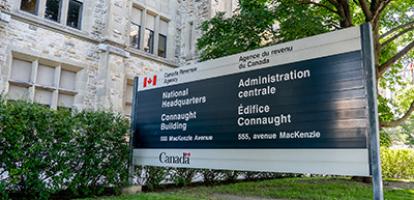From: Benjamin Dachis
To: Minister Marc Garneau
CC: Minister Navdeep Bains
Date: November 7, 2016
Re: Keep Easing Foreign Ownership Rules on Airlines
Last week, your government announced that it would increase the limit of foreign ownership on airlines operating domestic routes. That move looks like it is already resulting in new entrants to the airline market. Your government should keep going in reducing costs on travellers by cutting fuel taxes and apply the lessons from reducing cost for air travellers to telecoms customers too.
For an airline to operate a domestic route in Canada today, no more than 25 percent of its voting shares may be foreign-owned. Such a restriction increases the cost of borrowing and limits the size of the available capital pool to finance the purchase or leasing of aircraft, which is one of the largest expenses airlines incur.
The restriction on foreign ownership can also result in airlines’ being underfinanced and otherwise more vulnerable to cyclical downturns or force them to arrange their voting and financing control rights in ways that raise the cost of finance. Air Canada discovered this when it emerged from bankruptcy.
Your announcement resulted in an immediate response from the market. Enerjet, a Calgary-based service looking to start serving passengers at costs well below existing airlines, announced the same day that they would be seeking financing from a US-based private equity firm. This should encourage you and your Cabinet colleagues to look at what additional moves could be made to provide long-term relief to Canadian consumers.
The best long-term solution is that the federal government should eliminate remaining restrictions on the foreign ownership of airlines that operate within Canada. Rather than relying on sector-specific ownership rules, Ottawa instead should rely on the Investment Canada Act, which applies to all industries, to block major foreign purchases that may be deemed detrimental to Canada.
Your government, having demonstrated it is serious about reducing the cost of air travel, should also look to reduce aviation fuel taxes.
The federal government and most provinces levy taxes on aviation fuel, the largest single cost input for airlines, used on domestic flights, although – with the notable exception of Ontario – not on international flights. The federal aviation fuel tax was introduced in the 1970s to finance aviation infrastructure and Air Canada, and is now 4 cents per litre. Your government should consider removing its aviation fuel tax entirely. The fuel tax revenues Ottawa collects are not linked to any services it provides or to aviation infrastructure it finances.
If looser foreign ownership restrictions are going to cut costs for air travel, your government should also ease foreign ownership rules elsewhere in the economy.
Similar foreign ownership rules apply in telecoms and broadcasting. According to the OECD, Canada’s foreign ownership restrictions in telecoms are the most stringent in the world.
Foreign ownership limits and high taxes make working with and seeing other people across the country – either in person or digitally – more expensive than it needs to be. Easing foreign ownership rules for domestic airlines is an encouraging start, which should be followed by additional steps in the same direction.
Ben Dachis is an Associate Director of Research at the C.D. Howe Institute.
To send a comment or leave feedback, email us at blog@cdhowe.org.





